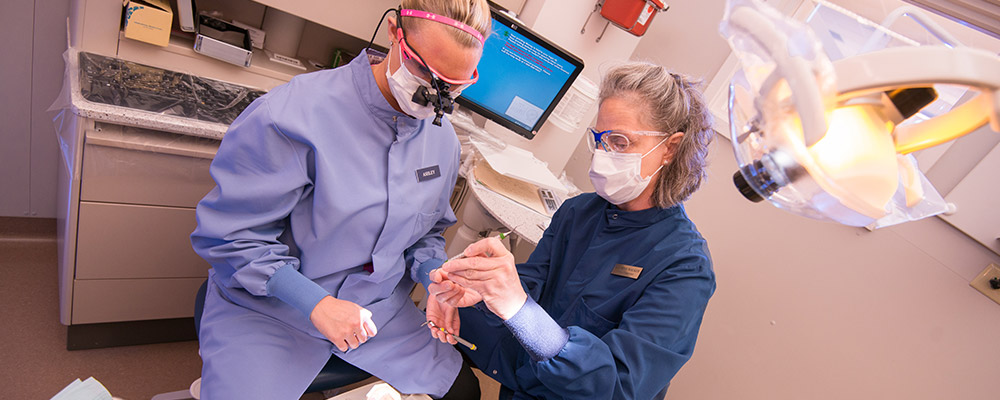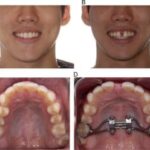https://upload.wikimedia.org/wikipedia/commons/c/ca/1×1.png
Dental assistants play a crucial role in the dental office, assisting dentists in providing quality oral healthcare to patients. While their responsibilities vary from state to state, some states have expanded the role of dental assistants to include additional tasks and procedures. These states recognize the value and expertise of dental assistants and have implemented programs to train and certify them as Expanded Function Dental Assistants (EFDA).
An EFDA is a dental assistant who has completed additional education and training to perform certain advanced dental procedures under the supervision of a licensed dentist. This expanded role allows EFDA to take on more responsibilities and provide a higher level of care to patients. They can perform tasks such as placing and removing dental fillings, taking impressions, applying sealants, and assisting with more complex procedures.
Overview of Expanded Function Dental Assistants
An expanded function dental assistant (EFDA) is a dental professional who has received additional training and education to perform advanced dental procedures under the supervision of a licensed dentist. EFDA’s play a crucial role in dental practices by assisting dentists in providing high-quality dental care to patients.
Duties and Responsibilities
Expanded function dental assistants are trained to perform a variety of tasks and procedures, including:
- Preparing patients for dental procedures
- Assisting dentists during dental procedures
- Taking and developing dental X-rays
- Administering local anesthesia
- Applying sealants and fluoride treatments
- Performing dental impressions
- Placing and removing dental fillings
- Performing dental cleanings and polishing
Importance in Dental Practices
Furthermore, EFDA’s contribute to the overall success of dental practices by ensuring that patients receive the highest standard of care. Their expertise in performing various procedures helps in improving the quality of dental treatments and enhancing patient outcomes.
Collaboration with Dentists and Dental Team
Expanded function dental assistants work closely with dentists and other members of the dental team to provide comprehensive dental care. They collaborate with dentists in treatment planning, ensuring that all necessary procedures are carried out efficiently. EFDA’s also communicate with patients, explaining procedures, addressing concerns, and providing post-treatment instructions.
Additionally, expanded function dental assistants work alongside dental hygienists, dental lab technicians, and administrative staff to ensure smooth operation of the dental practice. Their teamwork and coordination contribute to a positive and efficient work environment.
Continuing Education and Professional Development
As dental practices and technologies continue to evolve, it is essential for expanded function dental assistants to stay updated with the latest advancements in the field. Many states require EFDA’s to complete continuing education courses to maintain their licensure.
Continuing education allows EFDA’s to expand their knowledge and skills, ensuring that they can provide the best possible care to patients. It also provides opportunities for professional growth and career advancement, such as specializing in specific areas of dentistry.
Importance of Expanded Function Dental Assistants in Dental Practices
Expanded Function Dental Assistants (EFDA) play a crucial role in dental practices by assisting dentists in various procedures and ensuring the smooth operation of the clinic. They are highly trained professionals who have acquired additional skills and knowledge to perform advanced dental tasks under the supervision of a licensed dentist.
One of the primary reasons why EFDA is important in dental practices is their ability to enhance the efficiency and productivity of the dental team. With their expanded skills, they can perform a wide range of tasks, including taking X-rays, placing dental sealants, applying topical anesthetics, and performing coronal polishing. By taking on these responsibilities, EFDA allows the dentist to focus on more complex procedures, thus increasing the number of patients that can be treated in a day.
In addition to improving efficiency, EFDA also contribute to the overall quality of patient care. They assist dentists during various procedures, ensuring that all necessary instruments and materials are readily available. They also provide chairside support to patients, offering comfort and reassurance throughout their dental visit. EFDA’s attention to detail and ability to anticipate the needs of both the dentist and the patient contribute to a positive dental experience and improved patient satisfaction.
Another important aspect of EFDA’s role in dental practices is their contribution to infection control and sterilization procedures. They are responsible for ensuring that all instruments and equipment are properly cleaned, sterilized, and maintained. This plays a critical role in preventing the spread of infections and ensuring the safety of both the dental team and the patients.
Licensing and Certification Requirements for Expanded Function Dental Assistants

Expanded Function Dental Assistants (EFDA) play a crucial role in dental practices, working alongside dentists to provide high-quality patient care. In order to become an EFDA, individuals must meet specific licensing and certification requirements, which vary by state.
Most states require EFDA candidates to have completed a dental assisting program accredited by the Commission on Dental Accreditation (CODA). These programs typically include both classroom instruction and hands-on clinical experience. Additionally, candidates must pass the Dental Assisting National Board (DANB) exam to become a Certified Dental Assistant (CDA).
Once candidates have obtained their CDA certification, they can pursue additional training to become an EFDA. This training typically involves completing a state-approved EFDA program, which focuses on advanced clinical skills and expanded duties, such as placing fillings, taking impressions, and applying sealants.
After completing the EFDA program, candidates must pass a state-specific exam to obtain their EFDA license. This exam assesses their knowledge and competency in performing expanded functions. Some states also require EFDA candidates to have a certain number of hours of work experience under the supervision of a licensed dentist.
Overall, obtaining the necessary licensing and certification to become an EFDA requires a combination of formal education, hands-on training, and passing exams. By meeting these requirements, individuals can become valuable members of dental practices, providing expanded dental services and improving patient outcomes.
Training and Education Programs for Expanded Function Dental Assistants
Training and education programs for expanded function dental assistants are essential for ensuring that individuals have the necessary skills and knowledge to excel in their roles. These programs provide a comprehensive curriculum that covers various aspects of dental assisting, including both clinical and administrative tasks.
One option for individuals interested in becoming expanded function dental assistants is to enroll in a dental assisting program at a community college or technical school. These programs typically last between 9 months to 1 year and offer a combination of classroom instruction and hands-on clinical experience. Students learn about dental anatomy, oral health, dental procedures, infection control, and dental radiography, among other topics.
After completing a dental assisting program, individuals can choose to pursue additional training and education specifically for expanded function dental assisting. This can be done through various continuing education courses and workshops that focus on teaching the advanced skills required for expanded function dental assistants.
In addition to formal education programs, there are also online courses and self-study materials available for individuals who prefer a more flexible learning option. These resources allow individuals to learn at their own pace and from the comfort of their own homes.
Upon completion of a training and education program, individuals may be required to pass a certification exam to become a certified expanded function dental assistant. This certification demonstrates competency and can enhance job prospects.
Overall, training and education programs play a crucial role in preparing individuals for a career as an expanded function dental assistant. These programs provide the necessary knowledge and skills to excel in the field and contribute to the overall success of dental practices.
Job Opportunities for Expanded Function Dental Assistants
Expanded Function Dental Assistants (EFDAs) play a crucial role in dental practices across the United States. With their advanced training and skills, EFDAs have a wide range of job opportunities in various dental settings.
Dental Offices
The most common job opportunity for EFDAs is in dental offices. They work closely with dentists and dental hygienists to provide comprehensive dental care to patients. EFDAs can perform a variety of tasks, including taking x-rays, preparing patients for procedures, assisting during dental procedures, and educating patients on oral hygiene.
Specialty Dental Practices
Community Health Centers
Educational Institutions
Research and Industry
Overall, the job opportunities for EFDAs are diverse and plentiful. EFDAs can choose to work in various dental settings, depending on their interests and career goals. With the growing demand for dental care, the need for EFDAs is expected to continue to increase, providing even more job opportunities in the future.
Salary and Benefits for Expanded Function Dental Assistants
Salary
The salary of an EFDA can vary depending on factors such as experience, location, and the type of dental practice. On average, EFDA professionals in the United States earn an annual salary ranging from $40,000 to $60,000. However, experienced EFDA professionals with advanced certifications and specialized skills can earn even higher salaries, reaching up to $80,000 per year.
Benefits
In addition to competitive salaries, EFDA professionals typically receive a comprehensive benefits package that may include:
- Health insurance coverage: Dental assistants often have access to dental care benefits, including routine check-ups and treatments.
- Retirement plans: Many dental practices offer retirement plans, such as 401(k) options, to help EFDA professionals save for their future.
- Paid time off: EFDA professionals may receive paid vacation days, sick leave, and holidays, allowing them to maintain a healthy work-life balance.
- Continuing education opportunities: Dental practices may provide opportunities for EFDA professionals to attend conferences, workshops, and training programs to enhance their skills and stay updated with the latest advancements in the field.
- Professional development: Some dental practices offer financial assistance for EFDA professionals pursuing further education or certifications to advance their careers.
- Employee discounts: EFDA professionals may receive discounts on dental treatments and services for themselves and their immediate family members.
These benefits not only contribute to the overall job satisfaction of EFDA professionals but also help attract and retain top talent in the field.
Challenges Faced by Expanded Function Dental Assistants in the Workplace
Being an Expanded Function Dental Assistant (EFDA) can be a rewarding career choice, but it also comes with its fair share of challenges. These challenges can vary depending on the specific dental practice and the state in which the EFDA is employed. Here are some common challenges faced by EFDA’s in the workplace:
Limited Scope of Practice:
One of the main challenges faced by EFDA’s is the limited scope of practice. While they have received additional training and education to perform certain tasks, there are still restrictions on what they can do compared to dentists. This can be frustrating for EFDA’s who may feel that their skills and abilities are underutilized.
Communication and Teamwork:
Time Management:
Another challenge for EFDA’s is time management. Dental practices can be fast-paced environments, and EFDA’s must be able to juggle multiple tasks and prioritize their workload. They may need to assist with multiple procedures simultaneously or handle unexpected emergencies, requiring them to be flexible and efficient in managing their time.
Stress and Pressure:
Working in a dental practice can be stressful, and EFDA’s may face pressure to perform their duties quickly and accurately. They must maintain a calm and professional demeanor, even in high-pressure situations. This can be challenging, especially when dealing with difficult patients or complex procedures.
Continuing Education:
Work-Life Balance:
Like any healthcare profession, EFDA’s often struggle with maintaining a healthy work-life balance. Dental practices may have long hours, including evenings and weekends, which can make it difficult for EFDA’s to spend time with their families or pursue personal interests. The physical demands of the job, such as standing for long periods and wearing personal protective equipment, can also take a toll on their well-being.
Despite these challenges, many EFDA’s find fulfillment in their work and are dedicated to providing quality care to their patients. By addressing these challenges and finding ways to overcome them, EFDA’s can continue to thrive in their profession.
Future Outlook for Expanded Function Dental Assistants in the United States
The future outlook for expanded function dental assistants in the United States is promising. With the increasing demand for dental services and the growing emphasis on preventive care, the role of expanded function dental assistants is becoming more important than ever before.
1. Job Growth
According to the Bureau of Labor Statistics, the employment of dental assistants is projected to grow 7 percent from 2019 to 2029, faster than the average for all occupations. This growth is expected to create a significant number of job opportunities for expanded function dental assistants.
2. Expansion of Dental Practices
As dental practices continue to expand and incorporate new technologies and procedures, the need for skilled dental assistants who can perform a wide range of tasks will also increase. Expanded function dental assistants, with their advanced training and knowledge, will be in high demand to assist dentists in providing quality care to patients.
3. Increased Focus on Preventive Care
With the growing emphasis on preventive care, dental practices are shifting their focus from treating dental problems to preventing them. Expanded function dental assistants play a crucial role in educating patients about proper oral hygiene practices and assisting in preventive procedures such as sealant application and fluoride treatment.
4. Advancements in Dental Technology
5. Opportunities for Career Advancement
Expanded function dental assistants have the opportunity to advance their careers by pursuing additional education and certifications. They can specialize in areas such as orthodontics, periodontics, or oral surgery, which can lead to higher-paying positions and increased job opportunities.

Dr. Fidel Cann: Esteemed orthodontist with a lifelong dedication to enhancing smiles and oral health. Pioneering expertise, compassionate care.





